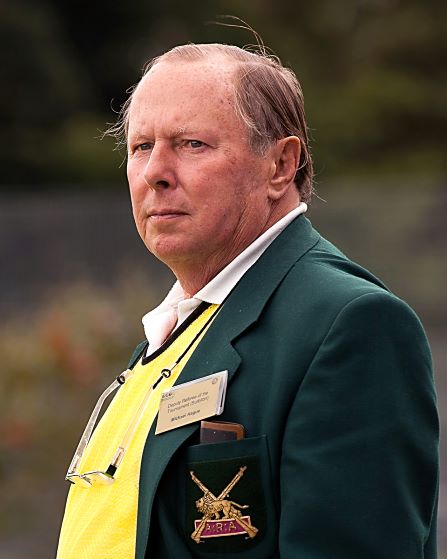
2018 Council Medal Awards - Michael Hague
 Michael Hague (Photo: Alan Edwards of Woking LTC)
Michael Hague (Photo: Alan Edwards of Woking LTC)
18th September 2018 (CqE Official News)
Brigadier Michael Hague
Since 2000 Michael Hague has been responsible for many significant advances in the coaching and development of croquet. Michael started playing in 1996 at the age of 61. Building on his experience of coaching in many sports during his Army service, he soon qualified as a Grade 1 Coach and at the same time took over as the South East Federation Schools, Coaching Officer and Development Officer. In April 2001 Michael organised the first CA Coaches Qualification Course at Surbiton. He devised a two day course to train coaches and wrote the course manual. He then was the lead coach at seven major clubs around the country and the format he developed became the model for all CA coach training courses. His coaching has included courses in five overseas countries, one of which was given in Italian! His work included referees courses and contributing to the structure of the present GC referee examination process including the introduction of mock exams.
Michael was a leading instigator of the first AC Coaching Manual, insisting that the format of coaching novices should be arranged in short, easily assimilated sessions which together form the six basic lesson structure still used as the framework for delivering elementary coaching today. Michael is both a GC Examining Coach and Championship Referee. He was Coach of the Year in 2002 and officiated at the 2004 and 2016 World Golf Croquet Championships. His knowledge has been captured in his many articles published in the Gazette in 2003 & 2004, culminating in his book Golf Croquet Tactics first published in 2005. It is now in its second revised edition and is used as a text book by GC players today. Michael's development work within the South East Federation has seen a large number of new clubs formed and blossom over many years. During his tenure of office, Michael has been instrumental in helping to devise progressive policies to assist start-up clubs and aid sustainable recruitment. His forensic and insightful analysis of grant applications has been a significant part of the effectiveness of the CA grant awarding process and his recent resignation after 17 years of service on the Development Committee will be a sad loss. Michael has left a splendid legacy
 Using this website
Using this website

